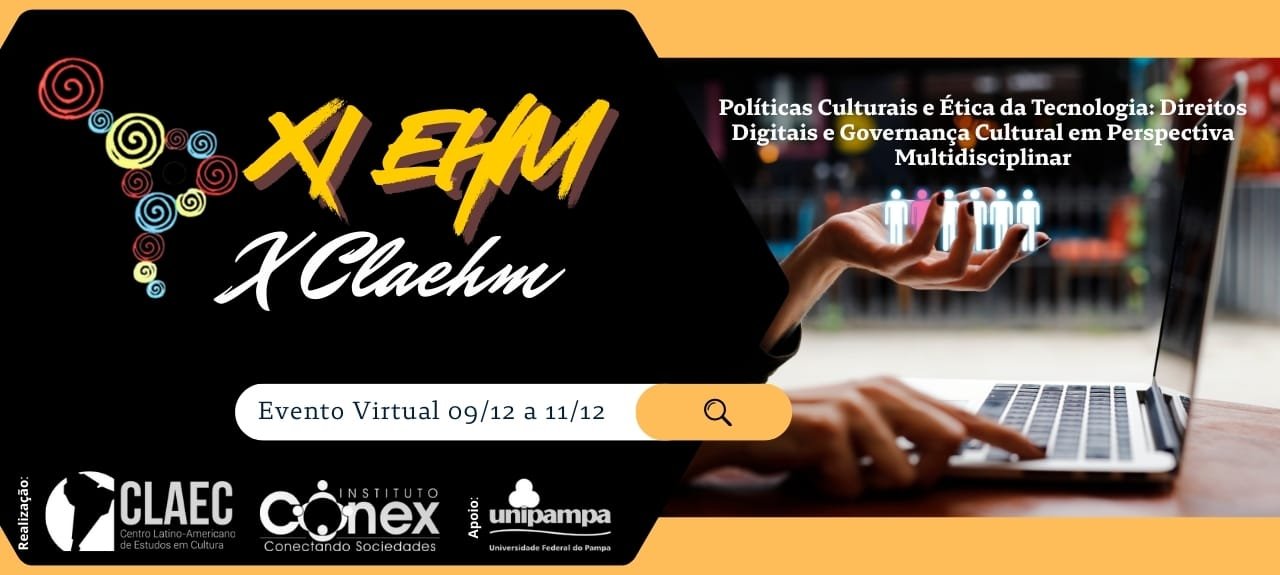Mestrando Sergio Schargel Maia de Menezes (PUC-Rio)
Em épocas de ascensão do anti-intelectualismo, a política da política consiste em um permanente ataque à arte, que, por conta própria, adota a política de resistência. Por si só, essa questão gera outras abordagens epistemológicas: é possível falar de arte sem falar de política? É possível ser apolítico na arte? O que significa discutir política e arte no Brasil de hoje? Ministrada por um pesquisador de ciência política e um pesquisador de literatura, a principal proposta deste minicurso é que seja criado um debate das relações dialógicas entre arte e política no Brasil contemporâneo, discutindo conceitos como poder, hegemonia, ur-fascismo e anti-intelectualismo. Importante ressaltar que o minicurso não tem intenção panfletária: não almeja, de forma alguma, atacar ou falar sobre partidos específicos, mas sim oferecer um panorama geral da relação simbiótica entre arte e política, a representação de conceitos políticos específicos na literatura e as metodologias de resistência que a arte pode assumir frente ao anti-intelectualismo. Com os recentes e constantes cortes na arte, cultura, ciência e tecnologia, bem como com a ascensão do anti-intelectualismo, justifica-se a relevância deste trabalho pela necessidade de se trazer um debate poliárquico sobre a importância da arte e da cultura para o pleno exercício do Estado democrático de direito, com particular atenção no que tange às formas com que a arte pode assumir para resistir ao autoritarismo e ao ur-fascismo. A escolha de um pesquisador dos dois campos de saber referentes a proposta não se deu por acaso: acreditamos que a contribuição de ambos será fundamental para debater as questões propostas; um contribuirá inevitavelmente com uma análise mais literária dos temas levantados, enquanto o outro fornecerá um exame mais voltado à política em si. Realizaremos, assim, uma dinâmica dialética, onde um irá consecutivamente complementar o que foi levantado pelo outro, permitindo um debate sólido sobre as questões propostas e mesmo a formação de um dissenso, que, como diz Jacques Rancière, é fundamental à democracia. Temos a intenção de que o minicurso seja aberto para todos, sem requisitos necessários para que a discussão seja acompanhada. Obviamente que, dada a possibilidade, conhecimento anterior relativo aos temas e subtemas é útil. Assim, a leitura de livros que permearão direta ou indiretamente o minicurso como A razão populista, de Ernesto Laclau, O fascismo eterno, de Umberto Eco, Como funciona o fascismo, de Jason Stanley, Não vai acontecer aqui, de Lewis Sinclair e Microfísica do poder, de Foucault, são certamente adendos, mas não são absolutamente necessários. A ideia é que o curso seja voltado à comunidade acadêmica em si, especialmente estudantes de cursos relacionados a artes, mas aberto à todos. “
Dialogues between art and politics: Resisting anti-intellectualism
“In times of rising anti-intellectualism, politics of politics consists of a permanent attack on art, which, on its own, adopts the politics of resistance. By itself, this question generates some other epistemological approaches: Is it possible to speak of art without speaking of politics? Is it possible to be apolitical in art? What does it mean to discuss politics and art in Brazil today? Taught by a political science researcher and a literature researcher, the main purpose of this short course is to create a debate on the dialogical relations between art and politics in contemporary Brazil, discussing concepts such as power, hegemony, ur-fascism and anti-intellectualism. Nevertheless, the short course has no pamphleteering intent: It does not in any way aim to attack or talk about specific parties, but rather to provide an overview of the symbiotic relationship between art and politics, the representation of specific political concepts in the literature, and the methodologies of resistance that art can assume against anti-intellectualism. With the recent and constant attacks towards art, culture, science and technology, as well as the rise of anti-intellectualism, the relevance of this work is justified by the need to bring a polyarchic debate on the importance of art and culture for the full exercise of the democratic rule of law, with particular attention to the paths of which art can take to resist authoritarianism and ur-fascism. The choice of a researcher from the two fields of knowledge related to the proposal was not by chance: we believe that the contribution of both will be fundamental to debate the proposed questions; one will inevitably contribute to a more literary analysis of the issues raised, while the other will provide a more focused examination of politics itself. Thus, we will realize a dialectical dynamic, where one will consecutively complement what was raised by the other, allowing a solid debate on the proposed issues and even the formation of a dissent, which, as Jacques Rancière says, is fundamental to democracy. We intend for the short course to be open for everyone, without any necessary requirements for the discussion to be followed. Obviously, given the possibility, prior knowledge of the themes and subthemes is helpful. Thus, reading books that will directly or indirectly permeate the short course as Ernesto Laclau’s The Populist Reason, Umberto Eco’s Eternal Fascism, Jason Stanley’s How Fascism Works, Won’t Happen Here, by Lewis Sinclair and Microphysics of Power, by Foucault are certainly additions, but they are not absolutely necessary. The idea is for the course to be more focused towards the academic community itself, especially students of arts-related courses, but open to everyone.
Sala 310
Dia 28 de novembro
Horário: 09:30-12:30
